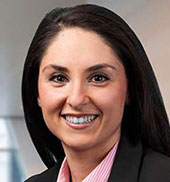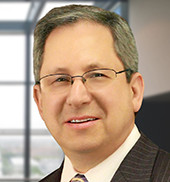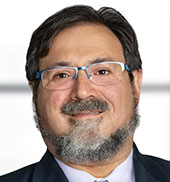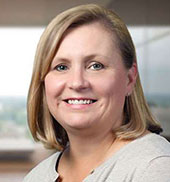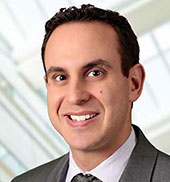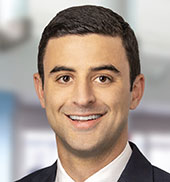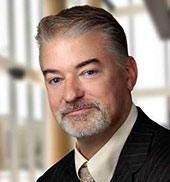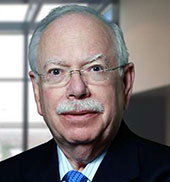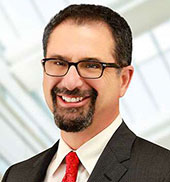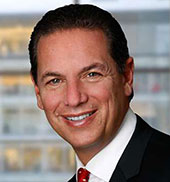There are three initiatives on Missouri’s November 6, 2018, ballot that seek to make medical cannabis legal under Missouri state law. In our first post, we covered the basics of each initiative. In this post, we discuss the implications of each initiative for cannabis businesses.
Amendment 2 – New Approach Missouri:
DHSS Licensing Authority
Under Amendment 2, a state license would be required to operate a facility. That license would be granted by the Missouri Department of Health and Senior Services (DHSS). While the DHSS could restrict the aggregate number of licenses granted, it could not limit licenses for cultivation facilities to less than 1 per 100,000 Missouri inhabitants, licenses for manufacturing facilities to less than 1 per 70,000 Missouri inhabitants, or licenses for dispensaries to less than 24 per U.S. congressional district. Should there be more license applicants than the minimum number of licenses allowed, the DHSS would score the applicants using a number of factors, including: background and qualifications of principal officers; business plans; site security; experience; and potential for positive community impact. Moreover, the DHSS would be able to lift any limit on the number of licensees to meet demands of Qualifying Patients.
Timeline
Applicants would be permitted to submit pre-filing application fees with the DHSS by January 5, 2019. License applications would become available no later than June 4 and DHSS would begin accepting applications no later than August 5. DHSS would be required to decide within 150 days whether to approve or deny the application. If no decision were made within the 150 day period, the applicant would have the right to seek an immediate court order requiring DHSS to approve or deny the application.
Fees
An application for a dispensary or manufacturing facility license would require a $6,000 application fee, if the license is sought within three years of the effective date of the initiative. Thereafter, the application and renewal fees (renewal is required every three years) will be $3,000. Once the licenses are granted, the licensee would pay a $10,000 annual fee per license.
The fee schedule for cultivation facilities is similar, although the fees are higher. The initial application fee would be $10,000, if made within three years of the effective date of the initiative. Thereafter, the application or renewal fee will be $5,000. Once granted, the annual license fee would be $25,000.
Restrictions on Licensees
Licensed cannabis businesses would be required to be held by entities that are majority-owned by Missouri residents. Anyone who has resided in the state for at least one year would qualify as a Missouri resident for this purpose.
No more than five dispensary licenses, three manufacturing or cultivation facility licenses, or three manufacturing or cultivation facility licenses could be granted to any one entity. Indoor cultivation facilities would be limited to 30,000 square feet of canopy space, and outdoor cultivation facilities would be limited to 2,800 flowering plants. Combination facilities would be limited to either 30,000 square feet of canopy space or 2,800 flowering plants.
Local Government Authority
Under Amendment 2, local governments could enact ordinances or regulations governing the time, place, and manner of operation of licensed cannabis businesses, as long as they are not in conflict with state law. Local governments would not be permitted to prohibit licensed cannabis businesses from operating within their boundaries, whether expressly or by enacting ordinances that make their operation unduly burdensome. Cannabis businesses would not be permitted to operate within 1,000 feet of elementary or secondary schools, child day-care centers, or churches, unless allowed by local governments.
Proposition C – Missouri Patient Care Act:
DATC and Local Government Licensing Authority
Under Proposition C, the Missouri Division of Alcohol and Tobacco Control (DATC) would oversee cannabis business licensing. Unlike Amendments 2 and 3, cannabis businesses under Proposition C would require both state and local (municipal or county) government-issued licenses.
The DATC could restrict the number of licenses granted for medical cannabis cultivation and production facilities, but that number could not be less than one license per every 100,000 state inhabitants. The state could restrict the number of licenses granted for medical cannabis centers (businesses selling or dispensing medical cannabis) to not less than 1 per 100,000 state inhabitants, unless additional centers were required to provide sufficient patient access. If additional centers were required, each applicant could be approved for an additional two medical cannabis center licenses.
Requirements for a DATC issued license would include: payment of the annual fee; provision of a surety bond, proof of assets, or filing of a tax return with a taxing agency; and a clean background check (including no felony convictions within 10 years of the application date). In making the decision to approve or deny a local license, local governments would be permitted to consider other factors such as the number and type of medical cannabis outlets near the premises under consideration.
Timeline
Proposition C would take effect on November 6, 2018, subject to the Missouri General Assembly’s right to delay. Subject to any changes made by the General Assembly, the DATC would make state and local license applications available May 5, 2019. Local governments would be required to enact any ordinances or resolutions by June 1; otherwise, they would follow Missouri’s minimum requirements. The DATC would be required to begin accepting state license applications by June 5.
Local governments would be required hold a public hearing 30 to 90 days after submission of a license application. Public notice of the hearing would be required to be posted not less than 10 days prior. Within 30 days after the hearing, local governments would be required to approve or deny the application. After approval of a local license, the local government would be required to notify the DATC, which would investigate and either approve or disprove the application for state licensure.
Local governments could request that the state and local review be conducted concurrently. Thus, the DATC and the local government could review the license applications at the same time. Once the application has been made to the DATC, however, the state would be required to approve or deny the license within 120 days.
After approval, the local government also would conduct a mandatory premises inspection. The local license would issue after the inspection was passed, and the state license could issue after finalization of the local government license.
Fees
Entities seeking a state license for any facility would be charged a non-refundable $12,500 application fee. Once granted, the license would be valid for one year and each licensee would be charged an annual fee of $12,500. The DATC could also charge other fees, including fees for background checks and fingerprint analysis. Local license and application fees would be determined by local governments, but could not be more than 10% of the state license fee or $1250.
Restrictions on Licensees
Cannabis businesses would be required to be at least 60% owned by a Missouri resident. A Missouri resident is defined as a person residing in the state for at least 3 years.
No more than three medical cannabis and production facility licenses could be issued to any person or any group that under substantially common control, ownership, or management.
At least one medical cannabis center license would be issued for each medical cannabis cultivation and production facility license. To do business in the state, a medical cannabis business would be required to hold both a medical cannabis center license and a medical cannabis cultivation and production facility license, and it would have to operate as a vertically integrated business. A medical cannabis center licensee would not be permitted to purchase more than 30% of its inventory from another licensed medical cannabis licensee. At least 70% of the medical cannabis flower sold at a medical cannabis center would have to be grown at its own cultivation and production facility.
Additionally, cannabis businesses would not be permitted to operate within 1,000 feet of a public or private school, college, or university; playgrounds; housing facilities owned by a public housing authority; or a licensed child care facility. Cannabis businesses also would not be permitted to operate within 100 feet of a public or private youth center, public swimming pool, or video arcade.
Local Government Authority
Under Proposition C, local governments would be permitted to enact reasonable regulations or restrictions on the distribution of medical marijuana that are more restrictive than state law, based on local zoning, health, safety, and public welfare. Local governments would be permitted to prohibit cannabis businesses within their boundaries by a two-thirds majority vote.
Amendment 3 – Bradshaw Amendment:
Research Board Licensing Authority
Under Amendment 3, the Research Board for a newly-established Biomedical Research and Drug Development Institute would be responsible for reviewing and granting business licenses to dispensaries, product manufacturing facilities, cultivation facilities, and medical marijuana research cultivation facilities.
Where there were more applications than available licenses, applicants would be judged based on a three-prong test:
- Knowledge of pharmacy and the ability to have a pharmacist available for consultation to qualifying patients purchasing marijuana;
- Knowledge of medicine and medical research;
- Competitive bids, with licenses awarded to the individual, individuals, or entities with the highest score. The bids would be made in a manner prescribed by the research board to avoid disclosure of bid amounts to competing bidders during the bidding process.
In addition, the Research Board could set aside up to 50% of the licenses to be awarded based on a ranking that would be based upon a combination of certain of the following factors (depending on the type of license at issue): knowledge of pharmacy, knowledge of neuroscience and marijuana interactions, experience with medicine and law, experience with retail pharmacy, health care, and the cannabis market, business plan, available capital, acceptance in site community, potential for positive economic impact and maintaining competitiveness in the medical marijuana marketplace. In ranking applicants and awarding licenses, the research board would be permitted to consult or contract with other public agencies with relevant expertise regarding these factors.
The Research Board would grant a maximum of 600 dispensary licenses, a minimum of 50 product manufacturing facility licenses, and 50 cultivation facility licenses.
Timeline
License applications would become available as early as March 31, 2018, but no later than June 30. The research board would accept applications between July 30 and October 29. Applicants would have the right to an administrative hearing as a result of denial.
Fees
Entities seeking a dispensary license would be charged an initial $25,000 for the first year, per license. Once granted, each license would be valid for one year and cost $10,000 to renew.
Entities seeking a license for product manufacturing would be charged an initial $20,000 for the first year, per license. Once granted, each license would be valid for one year and would cost $10,000 to renew.
Entities seeking a cultivation facilities license would be charged an initial $25,000 for the first year, per license. Once granted, each license would be valid for one year, allow for up to 20,000 square feet of plant canopy, and cost $15,000 to renew.
Entities seeking a research cultivation facilities license would be charged an initial $10,000 for the first year, per license. Once granted, each license would be valid for one year, allow for up to 2,500 feet of plant canopy, and cost $5,000 to renew.
Restrictions on Licensees
Under the Bradshaw Amendment, a cannabis business would be required to be at least 70% owned by a Missouri resident (defined as a person residing in the state for at least 3 years).
No more than five dispensary licenses would be granted to any entity under substantially common control, ownership, or management. It would not be permissible for one individual, group of individuals, or entity to possess more than fifty percent (50%) of the dispensary licenses for a given county or city not within a county.
No more than five product manufacturing facilities licenses would be granted to any entity under substantially common control, ownership, or management. It would not be permissible for one individual, group of individuals, or entity to possess more than fifty percent (50%) of the manufacturing licenses for a given county or city not within a county.
No more than three cultivation facilities licenses and five research cultivation facility licenses would be granted to any individual, group of individuals, or entity(s) under substantially common control, ownership, or management.
Local Government Authority
Under Amendment 3, local governments would be permitted to restrict the location, but not the number or presence, of licensed cannabis businesses under their land planning and zoning regulations.
Local governments would be permitted to request a 5-year exclusion from allowing licensed cannabis businesses to operate within their boundaries. The Research Board would reconsider renewing the exclusion every 5 years, as long as the matter were put to a local vote and a majority were in favor of continuing the ban.
Cannabis businesses would not be permitted to operate within 1,000 feet of any school, child day-care center, church, synagogue, or mosque.
Carl Rowley chairs the firm’s Mass Tort Practice and is a member of its Cannabis Practice.


